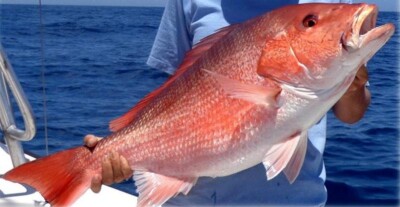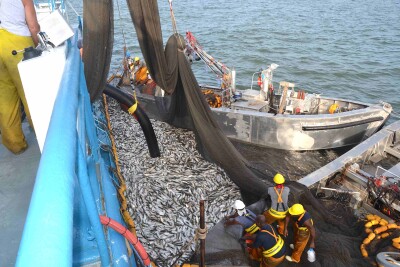Between a rock and a hard place
From UK Marine Accident Investigation Branch reporting
Worldwide, skippers, vessel owners and crew members are struggling to find a balance between low dock prices and the cost of manning and equipping commercial fishing vessels. Ireland's crabbing fleet is no exception.
How would any industry cope with being caught between sinking revenue and rising costs? Fuel, vessel maintenance, safety equipment upgrades and a growing list of electronics are not optional, but the crew is one place to make cuts. One of the risks of minimizing financial strain at the dock maximizes the risks to vessel, crew and gear. The culprit is fatigue.
Cutting back on crew while extending days at sea and hours spent setting and retrieving pots ensures a decent cut for the fishermen, but it also jeopardizes their safety when fatigue sets in.
The key is not to do away with the fishery, but to adjust your safety features to a reduced crew. One skipper learned these lessons the hard way.
In late March, a steel 60-foot Irish crabber was returning to her home port in northwest Ireland to unload a live catch after a six-day trip. Good weather and difficult industry conditions encouraged the crew to work long hours in order to land enough crab to make the trip profitable. The skipper and five crew members spent about 18 hours a day on deck and also split up night watches on the bridge.
On the last leg of the trip, the skipper took the bridge watch at 1 a.m. on a dark, clear night with no other vessels in the area. He sat in the wheelhouse chair, reset the watch alarm and soon thereafter fell asleep. At 1:50 a.m. the fishing boat grounded at the base of a steep cliff on the east shore of her home port.
The unnatural motion and sound of the steel boat striking the rocks immediately awoke the skipper. He was soon joined in the wheelhouse by the crew, who reported water flooding the accommodations area. The skipper made a mayday call to the Coast Guard and instructed the crew to don life jackets and warm clothing, as it was apparent the vessel was hard aground and badly damaged.
The Coast Guard prepared lifeboats, a helicopter and a cliff rescue team. A rescue helicopter flew over, but the team decided the boat's precarious position on the cliff made a nighttime rescue unsafe. They and the crabber's crew awaited daylight for a second attempt.
About three hours later, the fishing crew, who had remained commendably calm were airlifted to the helicopter, unharmed. During the rescue and throughout the night, the skipper maintained the sense of calm and made clear communications with the rescue team and the Coast Guard. The vessel was later declared a total loss. No one was injured.
Lessons learned
Despite a long wait for rescue after a rude awakening at the end of a grueling (though likely typical) fishing trip, the crew remained calm and was rescued safely. The skipper and crew reacted quickly by immediately assessing the damage and donning the appropriate gear for rescue. Unfortunately, this incident is just one of the inevitable effects of difficult commercial conditions. Profitability necessitates long trips with long hours, which leads to crew fatigue.
However, there are some precautions to take in the event of fatigue. Whenever possible — and especially when nearing port — two crew should stand watch to maintain constant vigilance. Whether one or more crew members are on watch, the bridge watch alarm should be located out of reach of the wheelhouse chair, which would require the watchkeeper to stand up and move toward the alarm in order to reset it.
The UK's Marine Accident Investigation Branch's deputy chief inspector commended the skipper and crew for their professional response to the accident, particularly with regard to the skipper's communications with the Coast Guard and rescue helicopter during the rescue.
When all else fails, calm, clear reaction to a life-threatening situation can save lives.
The U.S. Coast Guard is conducting a survey of the maritime industry to get feedback and comments on customer satisfaction. The activities subject to the survey now include Dockside Safety Exams and at-sea boardings.
Be sure to fill out your own Maritime Safety and Security Customer Satisfaction Report. Go to http://homeport.uscg.mil and click on Online Customer Surveys.






